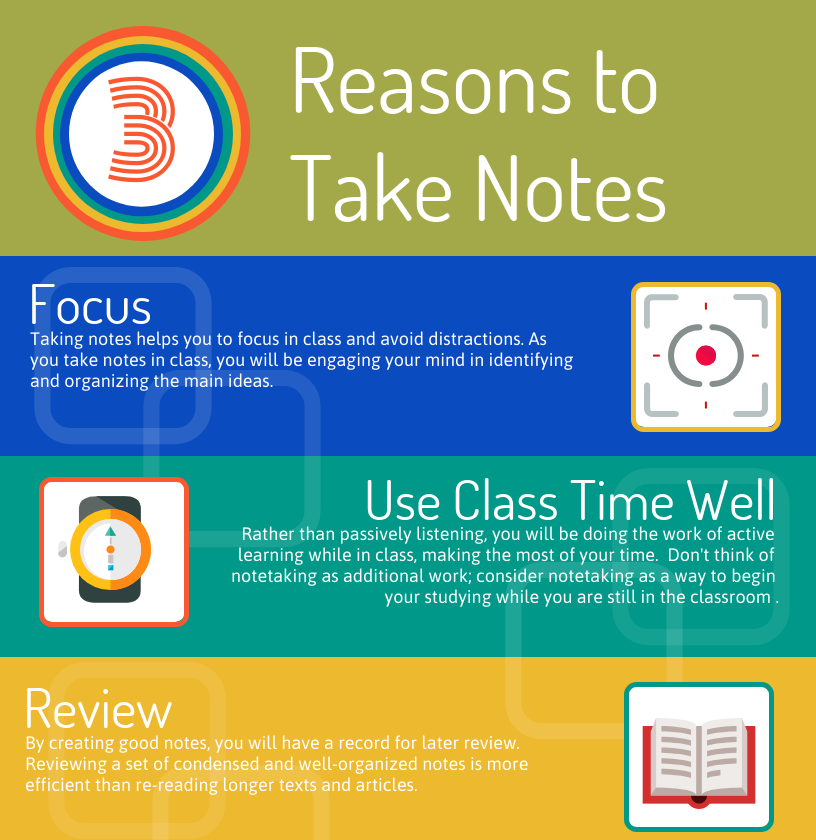Taking Notes
You’ve got the textbook and you listened to the instructor. Do you need to take notes as well? Despite the vast amount of information available in electronic formats, taking notes is an important learning strategy. In addition, the way that you take notes matters, and not all notetaking strategies lead to equal results. By considering your notetaking strategies carefully, you will be able to create a set of notes that will help you retain the most important concepts from lectures and tests, and that will assist you in your exam preparation.
By the time you finish this lesson, you will be able to:
- Describe the benefits of taking notes for learning
- Decide whether taking notes by hand or on a laptop is best for you
- Use notes to review class material and prepare for tests and exams.
Why Take Notes?
Two Purposes for Taking Notes
You will take notes for two main reasons:
- To keep a record of the information they heard. This is also called the external storage function of notetaking.
- To facilitate learning the material you are currently studying by encoding the information.

Taking Notes Interactive Video
In the activity below, you will watch a video that introduces you to the basic principles of taking effective notes. Along the way, you will answer questions to reinforce what you are learning.
Use Notes to Review
Reflect and Take Action
In this module, you explored strategies for taking notes. Reflect on how you will apply your learning with the following questions.
- Will you take notes by hand or with a computer (or a combination of both)? Why is this method best for you?
- How will you use your notes to review on a weekly basis? How will you use notes to review for tests and exams?
References
CrashCourse. (2017, August 8). Taking Notes: Crash Course Study Skills #1 [Video file]. Retrieved from https://www.youtube.com/watch?v=E7CwqNHn_Ns&t=1s
